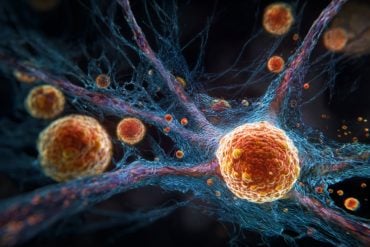Summary: Researchers say there is no reliable scientific evidence to support the claim that listening to Mozart’s Sonata KV448 can provide relief from symptoms of epilepsy as previously claimed.
Source: University of Vienna
Over the past fifty years, there have been remarkable claims about the effects of Wolfgang Amadeus Mozart’s music.
Reports about alleged symptom-alleviating effects of listening to Mozart’s Sonata KV448 in epilepsy attracted a lot of public attention. However, the empirical validity of the underlying scientific evidence has remained unclear.
Now, University of Vienna psychologists Sandra Oberleiter and Jakob Pietschnig show in a new study published in the prestigious journal Nature Scientific Reports that there is no evidence for a positive effect of Mozart’s melody on epilepsy.
In the past, Mozart’s music has been associated with numerous ostensibly positive effects on humans, animals, and even microorganisms. For instance, listening to his sonata has been said to increase the intelligence of adults, children, or fetuses in the womb.
Even cows were said to produce more milk, and bacteria in sewage treatment plants were said to work better when they heard Mozart’s composition.
However, most of these alleged effects have no scientific basis. The origin of these ideas can be traced back to the long-disproven observation of a temporary increase in spatial reasoning test performance among students after listening to the first movement allegro con spirito of Mozart’s sonata KV448 in D major.

More recently, the Mozart effect experienced a further variation: Some studies reported symptom relief in epilepsy patients after they had listened to KV448.
However, a new comprehensive research synthesis by Sandra Oberleiter and Jakob Pietschnig from the University of Vienna, based on all available scientific literature on this topic, showed that there is no reliable evidence for such a beneficial effect of Mozart’s music on epilepsy.
They found that this alleged Mozart effect can be mainly attributed to selective reporting, small sample sizes, and inadequate research practices in this corpus of literature.
“Mozart’s music is beautiful, but unfortunately, we cannot expect relief from epilepsy symptoms from it” conclude the researchers.
About this Mozart Effect and epilepsy research news
Author: Veronika Schallhart
Source: University of Vienna
Contact: Veronika Schallhart – University of Vienna
Image: The image is in the public domain
Original Research: Open access.
“Unfounded authority, underpowered studies, and non-transparent reporting perpetuate the Mozart effect myth: A multiverse meta-analysis” by Sandra Oberleiter et al. Scientific Reports
Abstract
Unfounded authority, underpowered studies, and non-transparent reporting perpetuate the Mozart effect myth: A multiverse meta-analysis
In recent years, an ostensible Mozart effect, suggesting beneficial influences of listening to the sonata KV448 on epilepsy, has been extensively covered in popular media outlets. However, the evidential value of such a potential effect seems unclear.
Here, we present the first formal meta-analysis on this topic, based on k = 8 studies (N = 207).
Further published studies that met our inclusion criteria had to be omitted due to insufficient reporting and author non-responsiveness on data requests.
In three independent analyses, we observed non-significant trivial-to-small summary effects for listening to Mozart KV448 or other musical stimuli on epilepsy or other medical conditions (g range: 0.09–0.43).
Bias and sensitivity analyses suggested that these effects were likely inflated and non-trivial effects were driven by isolated leverage points. Multiverse analyses conformed to these results, showing inconsistent evidential patterns.
Low primary study power and consequently lacking evidential value indicates that there is only little reason to suspect a specific Mozart effect. In all, listening to music, let alone a specific kind of sonata, does not appear to have any beneficial effect on epilepsy.
Unfounded authority, underpowered studies, and non-transparent reporting appear to be the main drivers of the Mozart effect myth.






